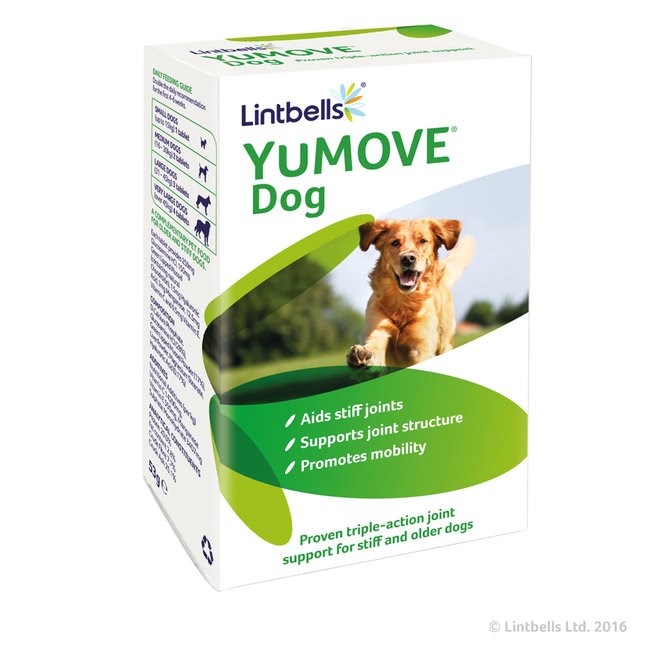Best Reasons For Picking Natural Dog Probiotics
Wiki Article
What Are The Advantages Of Glucosamine And Chondroitin For Joint Health For Cats And Dogs?
Glucosamine, Chondroitin and other supplements are used to maintain and improve the joint health of dogs as well as cats. What are the benefits and how do they work?
Glucosamine
Cartilage Repair and Forming:
Glucosamine is a substance that serves two purposes as naturally occurring within healthy cartilage. It can be found, in particular, in the fluid surrounding joints. It assists in the formation and repair of cartilage by stimulating the production of glycosaminoglycans.
Benefits : It can assist in slowing the degradation of cartilage, which can reduce discomfort and improving the functioning of joints.
Anti-inflammatory Effects:
The function: Glucosamine can have anti-inflammatory effects that reduce inflammation.
This treatment is able to help reduce swelling and pain of joints in pets, making them more mobile.
Chondroitin
Inhibition of Cartilage Breakdown
The function: Chondroitin Sulfate is a natural component of cartilage. It prevents the cartilage-related enzymes that cause degradation from doing so.
Benefits Chondroitin is a powerful antioxidant which protects cartilage and helps maintain joint health.
Improved Joint Lubrication
Function: Chondroitin helps to attract and hold in water within the cartilage. This is vital to maintain the elasticity and flexibility of joints.
The benefits of this product are that it enhances joint mobility, helping pets move more easily and with less pain.
Combined Benefits
Synergistic Benefits: Glucosamine and Chondroitin combined can produce synergistic effects, increasing the effects of each supplement. The combination has been proven to be more effective in improving joint mobility and reducing joint pain as compared to either supplement alone.
The regular usage of these products could aid in preventing and managing problems with joints, such as osteoarthritis in cats and dogs. They are particularly beneficial to older pets or pets with joint problems.
Use and aspects
Dosage and Administration: The dose can be adjusted according to a pet's health, weight or size. It is essential to follow the recommendations of the veterinarian as well as the dosage guidelines on the product's label.
While generally safe, certain pets can experience a mild digestive upset. It is recommended to watch your pet for any negative reactions, especially when starting the supplement.
Conclusion
Glucosamine & Chondroitin is a valuable supplement for dogs & cats to help maintain joint health. They are beneficial for cartilage repair and maintenance. They also help reduce inflammation and improve joint lubrication. Have a look at the top rated dog coughing for site info including pet allergy relief supplements, pet supplements for pets with fear of elevators and escalators, pet supplements for pets with joint inflammation, pet valerian supplements, pet supplements for pets with skin conditions, pet holy basil supplements, pet hyaluronic acid supplements, pet supplements for pets with muscle weakness and more.

Astragalus Is Used To Treat Kidney Problems In Cats And Dogs.
Astragalus is a plant used in traditional Chinese medicine, has been shown to have potential benefits in treating kidney failure in dogs and cats because of its antioxidant, anti-inflammatory and immunomodulatory properties. Astragalus is a potent plant which can be used to treat kidney problems in cats and dogs. Its anti-inflammatory, antioxidant, and immunomodulatory properties are advantageous.
Anti-inflammatory Properties
Reduce inflammation:
Astragalus has anti-inflammatory compounds such as saponins.
Benefits Reduced inflammation can reduce kidney damage, alleviate symptoms and improve kidney function overall.
Antioxidant Effects
Reduction of Oxidative Stress:
Function: Astragalus has potent antioxidant properties which neutralize free radicals which may cause cell damage.
Benefits In reducing the stress of oxidative, Astragalus helps protect kidney cells from damage. It also aids in promoting the kidney's function and slowing down the progression of diseases.
Immunomodulation
Immune System Support:
Astragalus increases the immune system's capacity to fight off infection and reduce autoimmunity.
Benefits Healthier immune system assists in preventing infections, and helps to reduce immune system's autoimmune reactions, which can cause kidney damage.
Improvement in Kidney Health
Improvement of Glomerular Filtration Ratio (GFR)
Astragalus may increase kidney function. This is because it boosts the rate of glomerular filtering, or the rate at which kidneys remove blood.
Benefits: A better filtering process can aid kidneys to remove waste more efficiently, reducing the symptoms of kidney failure. Additionally, it can improve overall health.
Anti-fibrotic Benefits
The prevention of kidney fibrosis:
Astragalus has anti-fibrotic properties which can help stop the development and accumulating of scar tissue around the kidneys.
Benefits: Fibrosis reduction helps keep the kidneys functioning, which is crucial for the preservation of kidney functions in pets suffering from chronic kidney disease.
Cardiovascular Support
Help for Cardiovascular Health
Astragalus is a powerful antioxidant that can improve the health of your cardiovascular system. It assists in maintaining healthy blood pressure levels as well as heart function.
Benefits: A better cardiovascular health could reduce the stress on kidneys and boost overall health. This is crucial when your pet suffers from kidney failure.
Diuretic Effects
Promotion of Urine flow:
Astragalus is an astringent diuretic that may improve urine production and aid in to eliminate waste materials.
Benefits: Increasing the flow of urine helps manage fluid balance, decreases the accumulation of toxins, and helps support kidney health.
Considerations and Usage
Dosage Administration and Dosage: The amount of Astragalus to give depends on the size, weight, and health status of your pet. It is important to follow the advice of your vet, because they can provide advice on the correct dosage and form for Astragalus.
Quality and Origin: Make sure to use high-quality, standardized Astragalus supplements to ensure safety and effectiveness. Select products designed specifically for animals.
Astragalus generally is safe for dogs however, some pets may have stomach issues. To minimize side-effects, start by taking a small amount, and increase it slowly. It is crucial to keep a vet watch your pet on a regular basis to determine how they react to the supplement. If necessary it is possible to have the dosage adjusted.
Check out the following article for more details.
Astragalus is a good supplement that can help control kidney disease in cats as well as dogs. Its antioxidative, antiinflammatory, immunomodulatory and anti-fibrotic effects aid in maintaining kidney function and health. Regular usage of Astragalus under the supervision by a vet, may reduce the development of kidney diseases, enhance quality of life, and improve the overall health of pets with kidney failure. See the top rated probiotics for dogs for website examples including pet oregano supplements, pet digestive enzymes, pet supplements australia, pet ginger supplements, australian natural pet products, pet astragalus supplements, pet supplements for pets with fleas and ticks, pet supplements for pets with fear of eye drops and more.

How Can Cat And Dog Getting Rid Of Yeast Infections With Apple Cider Vinegar?
Apple cider vinegar (ACV) is sometimes recommended as a natural cure for yeast infections in cats and dogs. ACV could have some advantages however, despite the anecdotal evidence and research that suggests its use is beneficial, it should be taken under veterinary supervision because of its acidic qualities and side consequences. Here's how ACV can be thought of as helping in the treatment of yeast infections:
Antifungal Properties
Acidic Environment:
Function: ACV is acidic, with a pH that is typically between 2.5 and 3. The acidic atmosphere makes yeast difficult to grow.
Benefits Utilizing ACV diluted ACV topically or adding it to the bath water of your pet can help to decrease the growth of yeast on the skin and in ears.
Skin pH Regulator
Balancing Skin pH:
ACV may help balance your skin's pH levels. This can promote the health of your skin barrier and help prevent the growth of yeast.
Benefits: Maintaining a proper pH balance in the skin can help prevent yeast infections and promote overall skin health.
Anti-inflammatory effects
The reduction of inflammation
ACV's mild anti-inflammatory properties are its main function.
Benefits: Reduce inflammation to alleviate symptoms such as itching, redness and discomfort that can be caused by yeast infections.
Support for Digestive Health
Internal Use
ACV's purpose is to enhance digestion by balancing the intestinal flora in low doses and in extremely diluted forms.
Benefits of a more healthy gut environment: Through supporting immune function and microbial equilibrium, a healthier gut environment can indirectly reduce the overgrowth of yeast.
Use and factors
Topical Application - Dilute ACV (typically 1 part ACV to 2 parts water) with water and use to rinse, spray, or ointment on affected areas. It is best to avoid applying it directly to open wounds, or sensitive skin.
Internal Use - If you are considering using ACV for internal use, consult your doctor first. ACV may be administered to young children in small amounts and should be highly dilute (e.g. 1 teaspoon or tablespoon per cup of water).
When applying ACV topically, be on the lookout for indications of irritation and allergic reactions. Stop using ACV if any negative reactions do occur.
Consultation with Veterinarian Consultation with a vet prior to applying ACV to treat yeast infections in pets. They can provide guidance on proper dilutions, application methods and possible risks, based on the individual health requirements of your pet.
End of Service
Apple cider vinegar might have potential benefits for managing yeast infections in cats and dogs, its use should be done with care and under veterinary supervision. Acidic properties of ACV can hinder yeast growth in the ear and on the skin. They may also offer some mild anti-inflammatory benefits. Proper dilution, and careful application is essential to avoid the risk of irritation or adverse reactions. ACV treatment is only effective when accompanied by veterinary advice. Take a look at the recommended yeast infections in dogs for blog recommendations including cushings disease alternatives, uti natural treament, pet ginger supplements, pet arthritis supplements, pet supplements for adopted pets, pet supplements for puppies and kittens, pet supplements for breeding dogs and cats, pet supplements for pets with fear of music and more.
